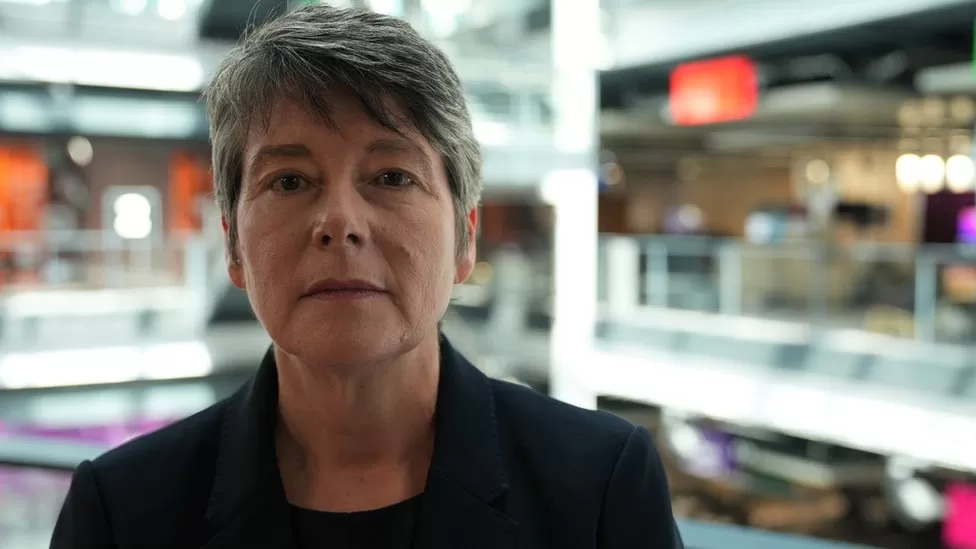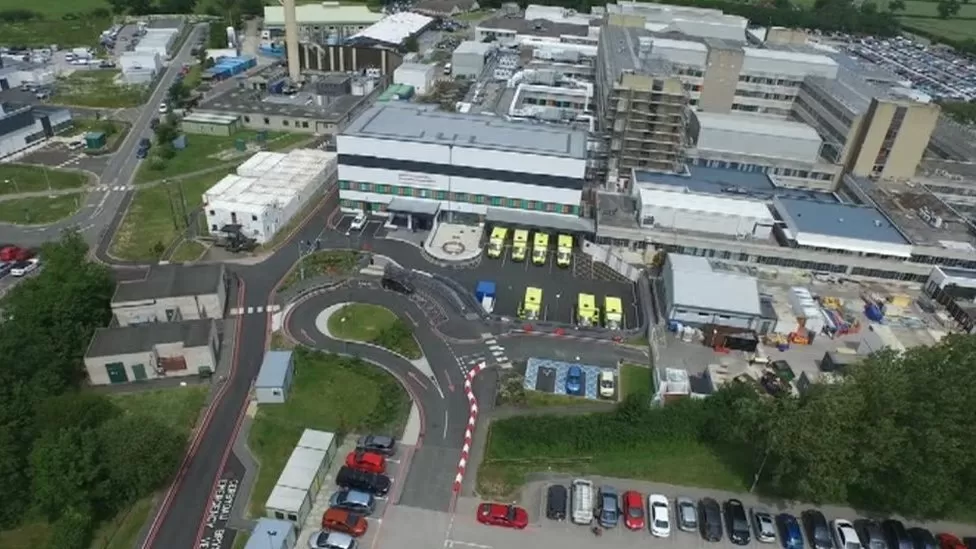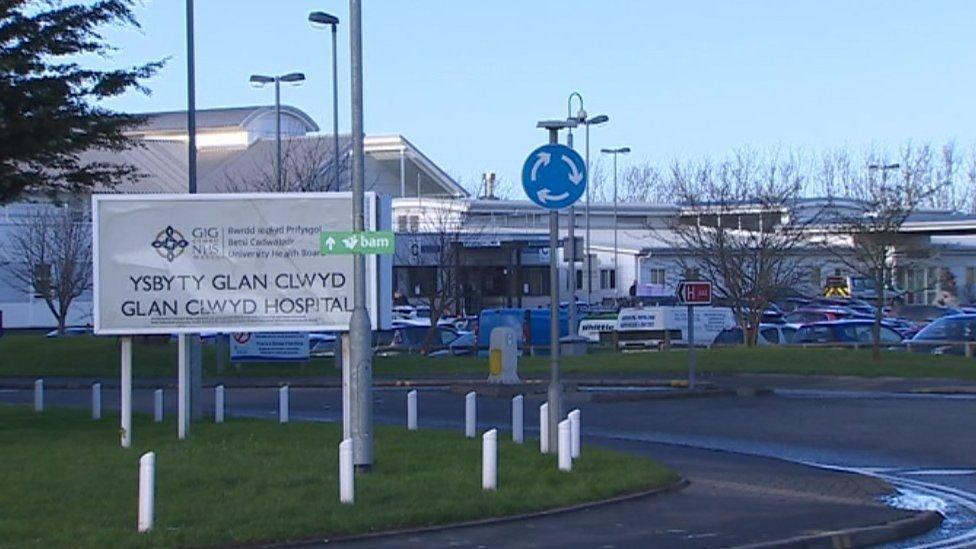Patient lost sight in eye due to hospital failings

The patient at the centre of the investigation was first seen at Glan Clwyd's emergency department in January 2018
At a glance
Betsi Cadwaladr University Health Board apologises to patient who lost eyesight as a result of treatment delays
Ombudsman upholds the patient's complaints against the health board
The board says it has made signficant improvements to vascular services, but accepts more needs to be done
- Published
Wales' largest health board has said it apologises "unreservedly" after treatment delays led to a patient losing the sight in an eye.
It follows an investigation by a watchdog into complaints about vascular services at Betsi Cadwaladr University Health Board.
The patient was seen by doctors at Glan Clwyd Hospital in Denbighshire in January 2018, but it was another 11 months before he had what was described as "urgent surgery".
The public services ombudsman for Wales also criticised the delay of nearly four years to respond to the patient's complaints.
Ombudsman Michelle Morris said there was a "complete failure" to follow treatment guidelines and the health board's own policies.
The investigation into the treatment and care of the patient referred to as Mr L found he has been left with permanent sight loss and needs lifelong treatment to manage pain and condition caused by the damage to his eye.
He was first seen by doctors at Glan Clwyd's emergency unit where the ombudsman said an opportunity to consider Mr L had suffered a "watershed stroke" was missed.
The patient was seen again in March and the watchdog said there was a further failure to investigate the cause of his ongoing symptoms.
It was not until September that a scan was finally carried out, revealing the need for urgent surgery, which still did not take place until November.

Michelle Morris says the health board must review its guidelines for treating vascular patients
"As a result of the repeated missed opportunities to identify and treat his vascular condition, Mr L suffered multiple strokes, ongoing discomfort, and blurred vision," said the ombudsman.
"Despite the irreversible nature of the condition affecting his eyesight, there still appeared to be no sense of urgency to offer treatment.
"These missed opportunities amount to significant service failures - they caused significant and ongoing injustice to Mr L because he continues to experience debilitating symptoms."
More deaths may be due to health board treatment
- Published13 July 2023
Health board's vascular service improving - report
- Published29 June 2023
Patients ask NHS boss if health board is safe
- Published28 November 2022
The watchdog also questioned why it took so long to respond to the complaint.
She said concern about health boards responding to patient complaints was an ongoing theme in Wales, highlighted in a report published by her last summer, external.
The ombudsman also said this case displayed "similar failings" at the health board and followed two critical reports into vascular services.

A controversial decision was taken to centralise complex vascular services at Glan Clwyd Hospital in 2019
Vascular services diagnose and treat people for problems with arteries, veins or circulation, and are often used by patients who have other health issues, such as diabetes.
The services provided by the health board have come under increased scrutiny since they were reorganised in 2019, with complex services centralised at Glan Clwyd.
However, a report by the Royal College of Surgeons in 2022 found risks to patient safety, leading to a demand by Health Inspectorate Wales to improve services.
The inspectorate reported back in June this year that the quality of care had improved, though more progress was needed.
The Welsh government has also commissioned its own review, while the senior coroner for north-east and central Wales wrote to ministers asking them to consider whether a pubic inquiry into vascular services at the health board was needed.
Executive medical director Dr Nick Lyons said: "I apologise unreservedly to Mr L on behalf of the health board, for the failures identified in his treatment."
He said "significant progress" has been made to address concerns about vascular services in north Wales, but also recognised "there is more to do".
He said the board accepted the ombudsman's findings in full.
Dr Lyons said they board also took its "contract we have with the public" to be open and honest "extremely seriously".
"We know we can only win the public’s trust, and provide services it has confidence in, by being fully transparent in our investigations," he added.
Related topics
Related internet links
- Published20 October 2023

- Published29 March 2023

- Published31 January 2023
